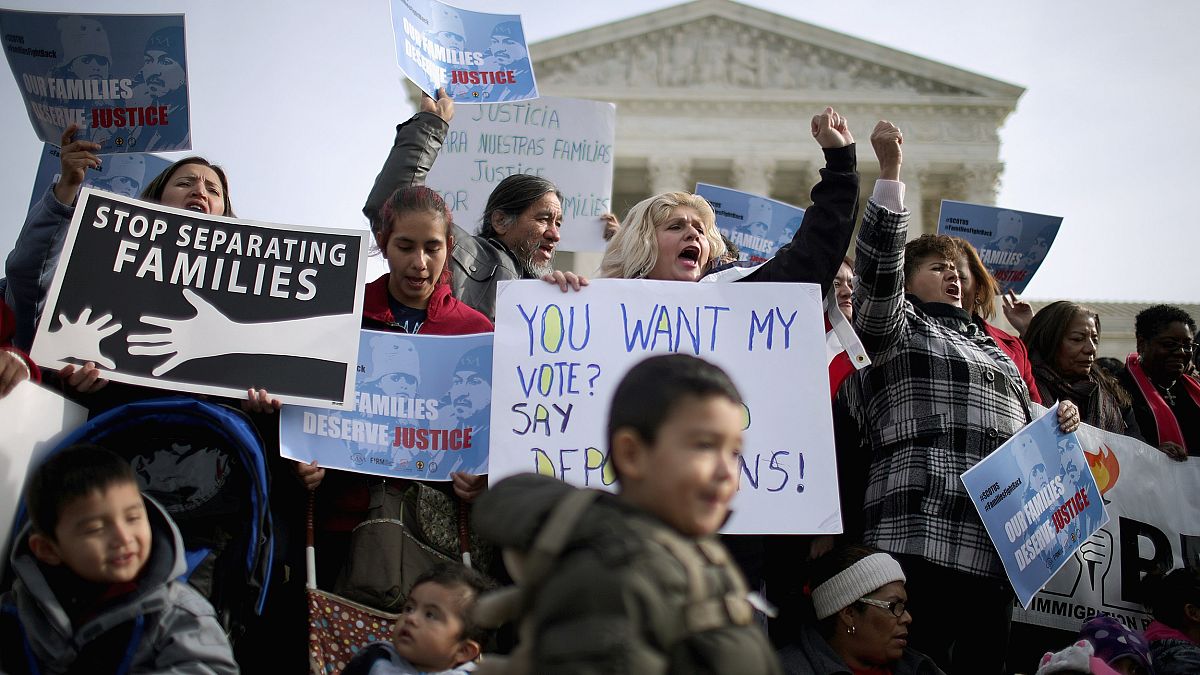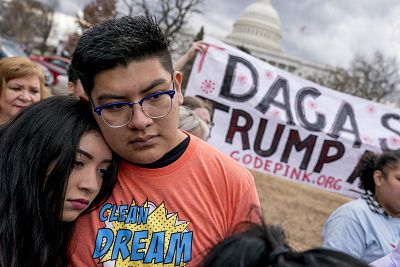The fate of nearly a million young people is at stake in one of the most important cases before the justices this term.
WASHINGTON — The U.S. Supreme Court on Tuesday takes up one of the most important cases of the term —the fate of DACA, the federal program that has allowed nearly 800,000 young people, known as Dreamers, to avoid deportation and remain in the country.
The court must decide whether the Trump administration improperly tried to shut DACA down by simply declaring the program to be illegal while offering no detailed explanation or analyzing the effect on the immigrant population. No such analysis was necessary, the Justice Department insists.
Short for Deferred Action for Childhood Arrivals, the initiative was launched in 2012 and allows children of illegal immigrants to remain here if they were under 16 when their parents brought them to the U.S. and if they arrived by 2007.
Although President Barack Obama imposed DACA by executive order, the program's defenders say President Donald Trump cannot stop it by declaring it to be illegal. They say federal law requires the government to give a detailed explanation for wanting to end such a program that affects nearly one million people. Instead, they argue, the Trump administration is hiding behind its claim that the program is illegal, rather than making a straightforward statement that it wants to change immigration policy.
"They did not want to take responsibility for it," said Ted Olson, the Washington, D.C., lawyer who will defend DACA before the Supreme Court in oral arguments on Tuesday. "Instead of saying, 'We want to eliminate DACA because we don't like the program, because we want to send a message,' they didn't say any of those things. They say, 'Mother made us do it'" by claiming it's illegal.
Among those nervously watching is Claudia Quiñonez of Maryland, brought to the U.S. at age 11 by her mother, who overstayed a tourist visa.
"DACA truly changed my life. I have a Social Security number. I have the ability to work, to contribute and pay taxes," she said.
Figures show that over 90 percent of DACA participants have a job and nearly half are in school. Many don't speak the language or know the culture of their home countries.
The case has attracted the interest of more than 100 businesses and trade groups, including the U.S. Chamber of Commerce, that are urging the Supreme Court to allow DACA to continue. Microsoft is one of the DACA defenders whose lawsuits led to court orders that kept the program going.
The company says more than 60 DACA recipients are among its employees. "These young people contribute to our company and serve our customers," Microsoft said in a court filing. "They help create our products, secure our services, and manage our finances."
Apple CEO Tim Cook filed a separate friend of court brief in support of DACA participants. "They, and immigrants like them, are vital to Apple's success," it said. "They spark creativity and help drive innovation. They are among our most driven and selfless colleagues."
After initially saying that DACA would be allowed to continue, the Trump administration moved to end the program in 2017. But three federal appeals courts blocked that attempt. Following a brief hiatus, the government began accepting renewal applications from DACA participants, which must be filed every two years.
The Justice Department argues that the administration does not need to offer the kind of detailed explanation for shutting down the program that DACA's defenders are demanding. It says the Department of Homeland Security has as much authority to stop the program now as it did to start it in 2012. The decision to terminate the program isn't subject to a review by the courts, the government says.
And even if the courts can review the decision to stop it, the Trump administration says it had ample reason to do so. Creating DACA was "legally questionable," it says, and a decision of that magnitude should be left to Congress.
"Broad-based and controversial deferred-action policies like DACA," the Justice Department says in its court brief, "should proceed only with congressional approval and the political legitimacy and stability that such approval entails."
A ruling in such a contentious case isn't likely until the spring of 2020, assuring that DACA will figure in the presidential campaign.

